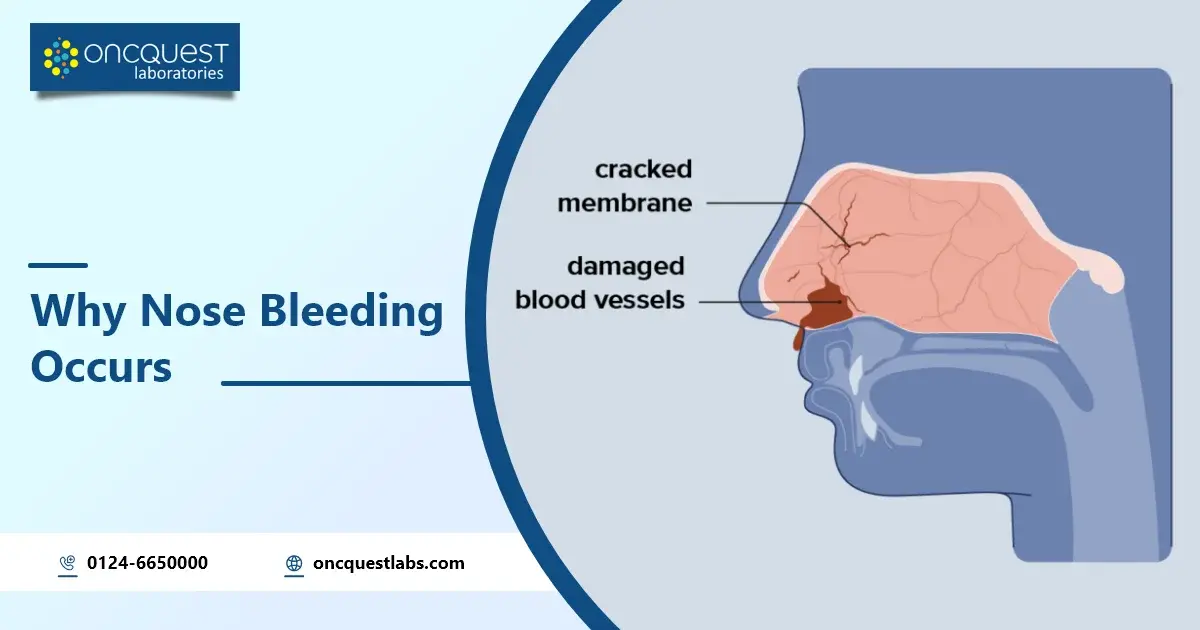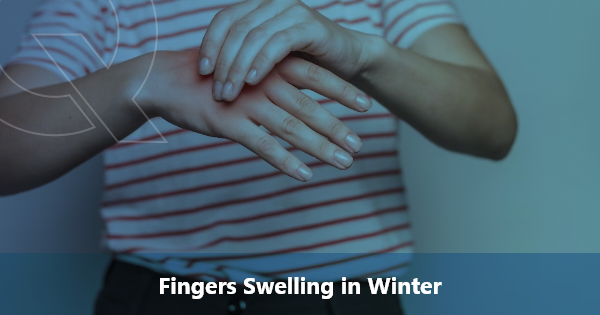Nosebleeds, medically known as epistaxis, are a common and often unsettling occurrence. If you’ve ever experienced one, you know just how alarming they can be. Whether it’s a sudden trickle or a more profuse bleeding, it’s essential to understand why nosebleeds occur and how to manage them effectively.
In this comprehensive guide, we will delve into the various causes of nosebleeds, shedding light on why they happen and how you can take steps to prevent them. From dry weather to underlying health conditions, we will explore the factors that contribute to this sometimes worrisome phenomenon. So, if you’ve ever wondered what’s behind that unexpected nosebleed, read on as we uncover the answers and provide practical tips to deal with this common medical issue.
Contents
- 1 What Is Nose Bleeding?
- 2 When Does Nose Bleeding Occur?
- 3 Disease Which Results To Nose Bleeding
- 4 Why Nose Bleeding In Winter?
- 5 How To Cure Nose Bleeding In Winter?
- 6 Why Nose Bleeding In Summer?
- 7 How To Cure Nose Bleeding In Summer?
- 8 When To Seek Medical Advice?
- 9 Conclusion
- 10 Frequently asked Questions- FAQs
What Is Nose Bleeding?
Nose Bleeding, or epistaxis, is a medical condition characterized by bleeding from the blood vessels in the nasal passages. It can occur in varying degrees of severity, ranging from minor, brief episodes to more significant and persistent bleeding. Nosebleeds are a common occurrence and can result from various factors, including dry air, injury, allergies, or underlying medical conditions. They typically happen when the delicate blood vessels in the nose’s lining become damaged or rupture, leading to bleeding from one or both nostrils. While most nosebleeds are not serious and can be managed at home, recurrent or severe nosebleeds may require medical attention.
When Does Nose Bleeding Occur?
Nosebleeds can occur for various reasons and in different situations. Some common triggers for nosebleeds include:
- Dry Air: Low humidity, particularly during the winter months, can dry out the nasal passages, making them more susceptible to bleeding.
- Nose Picking: Frequent or forceful nose picking can injure the blood vessels in the nose, leading to nosebleeds.
- Allergies: Allergic reactions can cause inflammation and irritation in the nasal passages, increasing the risk of nosebleeds.
- Infections: Infections in the nose or sinuses can lead to nasal congestion and inflammation, making nosebleeds more likely.
- Trauma: Accidents, falls, or injuries to the nose can cause immediate nosebleeds.
- Medications: Some medications, such as blood thinners, can increase the tendency for bleeding and may result in nosebleeds.
- Underlying Health Conditions: Certain medical conditions, such as high blood pressure, bleeding disorders, or tumors, can contribute to nosebleeds.
- Environmental Factors: Exposure to irritants like smoke, chemicals, or pollutants can irritate the nasal passages and trigger nosebleeds.
- Nasal Sprays: Overuse or incorrect use of nasal sprays, especially decongestants, can lead to nosebleeds.
- Foreign Objects: Foreign objects stuck in the nose can cause irritation and bleeding.
It’s essential to identify the specific cause of a nosebleed to determine the appropriate treatment and preventive measures. In most cases, nosebleeds are not a cause for major concern, but if they are recurrent, severe, or accompanied by other unusual symptoms, it’s advisable to seek medical advice.
Disease Which Results To Nose Bleeding
There are various medical conditions that can lead to nosebleeds (epistaxis). Some of the common diseases and conditions associated with nosebleeds include:
- Dry Air: Not a disease but a common environmental factor, dry air, especially during the winter months, can dry out the nasal passages and make them more susceptible to nosebleeds.
- Allergies: Allergic reactions can lead to inflammation and irritation in the nasal passages, increasing the risk of nosebleeds.
- Sinusitis: Inflammation and infection of the sinuses can lead to congestion and nasal irritation, increasing the likelihood of nosebleeds.
- Hypertension (High Blood Pressure): Elevated blood pressure can make the blood vessels in the nose more prone to bleeding.
- Bleeding Disorders: Conditions like hemophilia, von Willebrand disease, or platelet disorders can affect the blood’s ability to clot and result in recurrent nosebleeds.
- Nasal Trauma: Injuries to the nose, including fractures, can cause immediate nosebleeds.
- Nasal Polyps: These noncancerous growths in the nasal passages can lead to recurrent nosebleeds.
- Nasal Tumors: Benign or malignant tumors in the nasal passages may cause nosebleeds as a symptom.
- Medications: Some medications, such as blood thinners (anticoagulants) and non-steroidal anti-inflammatory drugs (NSAIDs), can increase the risk of nosebleeds.
- Liver Disease: Liver disorders can affect blood clotting, making nosebleeds more likely.
- Autoimmune Disorders: Certain autoimmune conditions, like granulomatosis with polyangiitis, can cause inflammation in the blood vessels, leading to nosebleeds.
- Infections: Local or systemic infections, such as COVID-19 or other viral illnesses, can lead to nosebleeds as a result of inflammation and dry mucous membranes.
It’s essential to identify the underlying cause of nosebleeds, especially if they are recurrent or severe, as treatment and management can vary depending on the specific condition or trigger. If you experience frequent or unexplained nosebleeds, it’s advisable to seek medical advice for a proper evaluation and diagnosis.
Why Nose Bleeding In Winter?
Nosebleeds in winter are a common occurrence due to several factors associated with the colder months:
- Low Humidity: Winter air is typically much drier, both outdoors and indoors due to heating systems. The dry air can lead to the drying out of the nasal passages, making the blood vessels in the nose more prone to damage and bleeding.
- Indoor Heating: Heaters and central heating systems reduce indoor humidity, exacerbating the dryness of the air. This can further irritate and dry out the nasal mucosa, increasing the likelihood of nosebleeds.
- Frequent Temperature Changes: Going from the cold outdoor air into a heated indoor environment can cause a sudden temperature change. This transition can cause the blood vessels in the nose to constrict and expand rapidly, potentially leading to ruptures and bleeding.
- Frequent Illness: Winter is often associated with an increase in colds and respiratory infections. Frequent nose blowing and congestion can further irritate the nasal passages, making them more susceptible to nosebleeds.
To prevent nosebleeds during the winter, you can use a humidifier to add moisture to the indoor air, apply a saline nasal spray to keep the nasal passages moist, and use a nasal ointment to prevent drying. Additionally, avoid excessive nose picking, and consider using a saline nasal spray before going to bed to keep the nasal passages moist overnight. If nosebleeds are severe or persistent, it’s essential to seek medical advice.
How To Cure Nose Bleeding In Winter?
To manage and prevent nosebleeds in the winter, consider the following steps:
- Use a Humidifier: Running a humidifier in your home can help maintain a more comfortable level of indoor humidity, preventing the drying out of your nasal passages.
- Saline Nasal Spray: Use a saline nasal spray regularly to keep the nasal passages moist. This can help prevent dryness and irritation.
- Nasal Ointment: Applying a saline-based nasal ointment or petroleum jelly inside your nostrils can provide a protective barrier against dry air and irritation.
- Stay Hydrated: Drinking an adequate amount of water helps keep your body and mucous membranes hydrated, which can reduce the risk of nosebleeds.
- Avoid Nose Picking: Refrain from picking your nose, which can damage the delicate blood vessels in your nasal passages and trigger nosebleeds.
- Use Nasal Shield or Mask: In extremely cold and dry conditions, consider wearing a nasal shield or a mask to protect your nose from the cold air.
- Limit Medications: If you are on medications that thin the blood (anticoagulants), consult your healthcare provider to adjust the dosage if necessary to reduce the risk of nosebleeds.
- Avoid Irritants: Steer clear of irritants like smoke, strong odors, and chemicals that can further irritate your nasal passages.
If a nosebleed does occur, follow these steps:
- Stay Calm: Remain calm and avoid any panic.
- Lean Forward: Tilt your head slightly forward to prevent blood from flowing down your throat.
- Pinch Your Nostrils: Pinch your nostrils together and breathe through your mouth to stop the bleeding.
- Apply Ice: Applying a cold compress or ice pack to the bridge of your nose can help constrict blood vessels and reduce bleeding.
- Avoid Tilting Backward: Do not tilt your head backward, as this can cause blood to flow down your throat, potentially leading to nausea or coughing.
- Seek Medical Attention: If the bleeding doesn’t stop after 20 minutes or if it’s severe, or if you have frequent nosebleeds, it’s advisable to seek medical attention.
By following these preventive measures and knowing how to respond if a nosebleed occurs, you can effectively manage and reduce the occurrence of nosebleeds during the winter months.
Why Nose Bleeding In Summer?
Nosebleeds can also occur in the summer, although the causes may differ from those in winter. Some reasons why nosebleeds may happen during the summer months include:
- Dry Air: In some regions, summer can bring hot and arid conditions. Dry air can dry out the nasal passages, making them more susceptible to bleeding.
- Allergies: Many people experience allergies in the summer due to pollen and other allergens. Allergic reactions can lead to inflammation and irritation in the nasal passages, increasing the risk of nosebleeds.
- Sunburn: Prolonged exposure to the sun can lead to sunburn, including on the nose. Sunburned skin is more fragile and can be prone to bleeding.
- Dehydration: Hot weather can lead to increased fluid loss through sweating, which can result in dehydration. Dehydrated mucous membranes can become more fragile and prone to bleeding.
- Outdoor Activities: Summer often involves more outdoor activities and sports, which can increase the risk of accidents and injuries that may result in nosebleeds.
To reduce the risk of nosebleeds in the summer, consider staying hydrated, using a humidifier in dry indoor environments, managing allergies with appropriate medications, and protecting your nose from excessive sun exposure. If you’re prone to nosebleeds or experience severe or recurrent bleeding, it’s a good idea to consult a healthcare professional for further evaluation and advice.
How To Cure Nose Bleeding In Summer?
To manage and prevent nosebleeds during the summer, you can follow these steps:
- Hydration: Stay well-hydrated by drinking an adequate amount of water throughout the day. Proper hydration helps maintain the moisture of your nasal passages, reducing the risk of nosebleeds.
- Use a Humidifier: If you’re in a dry indoor environment, especially when using air conditioning, a humidifier can help maintain the moisture in the air and prevent nasal dryness.
- Allergy Management: If you have allergies that worsen during the summer, consult with a healthcare provider to manage your symptoms with appropriate medications or treatments. Reducing allergy-related nasal irritation can help prevent nosebleeds.
- Sun Protection: Protect your nose and face from excessive sun exposure to prevent sunburn. Use sunscreen and, when possible, wear a hat or seek shade.
- Avoid Nose Picking: Refrain from picking your nose, which can damage the delicate blood vessels in your nasal passages and trigger nosebleeds.
- Stay Cool: If you’re in hot and sunny conditions, try to stay cool and avoid overheating, as excessive heat can lead to dehydration.
If a nosebleed occurs during the summer, follow these steps:
- Stay Calm: Remain calm and avoid any panic.
- Lean Forward: Tilt your head slightly forward to prevent blood from flowing down your throat.
- Pinch Your Nostrils: Pinch your nostrils together and breathe through your mouth to stop the bleeding.
- Apply Ice: Applying a cold compress or ice pack to the bridge of your nose can help constrict blood vessels and reduce bleeding.
- Avoid Tilting Backward: Do not tilt your head backward, as this can cause blood to flow down your throat, potentially leading to nausea or coughing.
- Seek Medical Attention: If the bleeding doesn’t stop after 20 minutes or if it’s severe, or if you have frequent nosebleeds, it’s advisable to seek medical attention.
By following these preventive measures and knowing how to respond if a nosebleed occurs, you can effectively manage and reduce the occurrence of nosebleeds during the summer.
When To Seek Medical Advice?
It’s essential to seek medical advice for nasal bleeding in the following situations:
- Severe or Prolonged Bleeding: If the nosebleed doesn’t stop after 20 minutes of applying pressure and following first-aid measures, it’s time to seek medical attention.
- Recurrent Nosebleeds: If you experience frequent nosebleeds, especially if they occur multiple times a week, it’s important to consult a healthcare professional. Frequent nosebleeds could be a sign of an underlying issue.
- High Blood Loss: If you lose a significant amount of blood during a nosebleed or if you feel lightheaded, dizzy, or faint, seek medical help immediately.
- Bleeding Disorder: If you have a known bleeding disorder or are taking medications that affect blood clotting, consult your healthcare provider, as they can provide guidance on managing nosebleeds.
- Difficulty Breathing: If the blood flows down the back of your throat, causing difficulty in breathing or swallowing, it’s a medical emergency, and you should go to the nearest hospital.
- Associated Symptoms: If your nosebleed is accompanied by other unusual symptoms, such as a severe headache, visual disturbances, or signs of infection, it’s important to seek medical evaluation.
- Underlying Health Conditions: If you have an underlying medical condition, such as high blood pressure, a history of nasal surgery, or a tumor in the nasal passages, consult with a healthcare professional regarding your nosebleeds.
Remember that while most nosebleeds are not serious and can be managed at home, some cases may require medical attention, especially if they are severe, recurrent, or associated with other concerning symptoms. Your healthcare provider can help determine the cause of your nosebleeds and provide appropriate treatment and guidance.
Conclusion
In conclusion, nosebleeds, or epistaxis, can be triggered by various factors, including environmental conditions, medical conditions, and individual habits. Dry air, common in both winter and summer, can dry out the nasal passages and make them prone to bleeding. Allergies, sinusitis, high blood pressure, bleeding disorders, and certain medications can further increase the risk of nosebleeds. Understanding the underlying cause is crucial for effective prevention and management. While most nosebleeds are not a cause for major concern, recurrent or severe nosebleeds should prompt consultation with a healthcare professional for a proper diagnosis and appropriate guidance on prevention and treatment.
Frequently asked Questions- FAQs
What is the main reason for nose bleeding?
The inner lining of your nasal passages is rich in delicate blood vessels situated near the surface, making them prone to irritation. Nosebleeds are primarily triggered by two main factors: 1) Dry air, which can lead to the drying out of nasal membranes, increasing susceptibility to bleeding and infections. 2) Nose picking.
Why is my nose bleeding without any reason?
In some cases, nosebleeds can be a sign of underlying conditions like bleeding disorders, hypertension, or atherosclerosis. Nosebleeds can also result from various factors, including trauma, irritation, dryness of the nasal lining, allergic rhinitis, common colds, or sinusitis.





